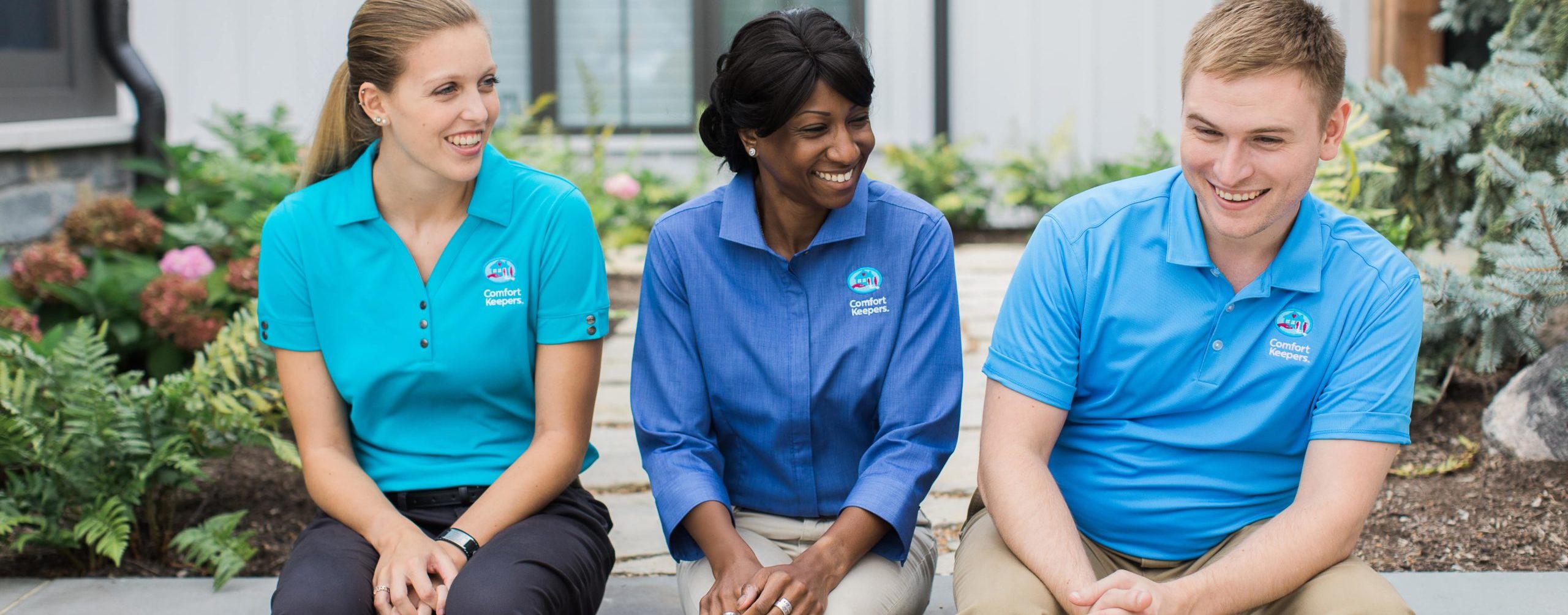Compassion Fatigue: What Family Caregivers Need to Know
Senior In-Home Care | November 7, 2024
Caring for others is often driven by motivations of love and understanding. It’s not uncommon for family caregivers to initially feel that their capacity for helping those they love is nearly limitless.
Knowing the Limits
Caring for others is often driven by motivations of love and understanding. It’s not uncommon for family caregivers to initially feel that their capacity for helping those they love is nearly limitless. From taking care of finances and managing medications to preparing meals and cleaning, there’s certainly a sense of fulfillment that comes along with assisting a loved one. But many find themselves going through the motions of caring without taking time out to focus on their own needs – often to the point of physical and emotional exhaustion. As a result, family caregivers may feel something they’ve never experienced before: decreased empathy. This condition is known as compassion fatigue.

In decades past, compassion fatigue was seen primarily in healthcare professionals. This should hardly come as a surprise considering the profession involves constantly helping patients who are suffering or experiencing diminished quality of life. But as the country’s aging population continues to grow, there are many family caregivers who are left feeling much the same way.
In addition to the lower threshold of empathy, family caregivers experiencing compassion fatigue may feel the following:
- Exhaustion (physical and/or emotional)
- Feelings of dread or guilt
- Irritability, anxiety, or anger
- Difficulty sleeping
- Difficulty making decisions
- Feeling disconnected
- Trouble finding meaning in caregiving
- Self-isolation
The Compassion Fatigue Awareness Project notes that the worst symptom of compassion fatigue is denial because it prohibits family caregivers from examining the feelings associated with their caregiving situation. And if ignored for an extended period of time, family caregivers may begin to feel resentment toward their loved one, ultimately leading to a communication breakdown and strained relationship.
Outside relationships suffer as well. In a collaborative research study with the Stanford Center on Longevity, Comfort Keepers, and ClearCare, it was indicated that those responsible for a loved one with a severe illness experience poor emotional wellbeing because of their inability to properly maintain their social lives. The results of the study highlight the increasing need for family caregivers to not only acknowledge their compassion fatigue, but also take steps toward self-care. Doing so can certainly help the family caregiver, but it will also help mend the relationship with their loved one.
What to Do Next
Below are a few steps that family caregivers can take to combat compassion fatigue and get back to feeling positive about caring for their loved ones.
- Understand the common signs of compassion fatigue (listed above) and acknowledge them if they occur.
- Practice a self-care regimen that includes a balanced diet, regular exercise, and consistent sleep.
- Carve out time to spend with friends and maintain social connections.
- Find a caregiver support program, either in the community or online.
- Document your thoughts and feelings related to caregiving in a journal.
- Choose healthy activities during your downtime (e.g., go for a walk, meditate, or practice a favorite hobby).
- Discuss your feelings with a counsellor or therapist.
References:
Good Therapy. “The Cost of Caring: 10 Ways to Prevent Compassion Fatigue.” Web. 2016.
Psychology Today. “Are You Suffering from Compassion Fatigue?” by Sherrie Bourg Carter Psy.D. Web. 2014.
Stanford Center on Longevity. “Spotlight on Caregiving: Exploring the Well-being of Family Caregivers” by
Sarah Raposo, Jessica Barnes, Tamara Sims, Amy Yotopoulos, Laura Carstensen, Mary Bowman,
Jacquelyn Kung. Web. 2016.
Daily Caring. “How to Cope with Compassion Fatigue: 8 Tips for Caregiver.” Web. 2017.
AARP. “Caregiving in the U.S.” Web. 2015.
Individualized Home Care Options
Long-Term Home Care, 24 Hour Home Care & Short Term Care Options Customized for You












